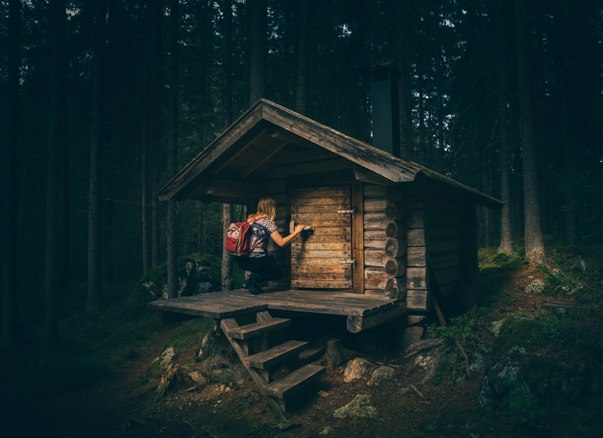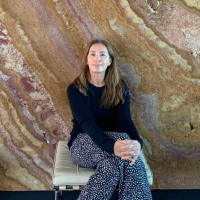
“I believe that our species will not last long. It does not seem to be made of the stuff that has allowed the turtle, for example, to continue to exist more or less unchanged for hundreds of millions of years…We belong to a short-lived genus of species. All our cousins are already extinct. What’s more, we do damage.” ~ Carlo Rovelli
I have never read a book on physics that made me think about love before.
Carlo Rovelli’s Seven Brief Lessons on Physics explains the major concepts of modern physics in a clear and concise manner, and it reads like poetry!
Like poetry, it slows down the world and attempts to make sense of the infinite and the incomprehensible.
This surprising little book reminded me that, despite the depths of knowledge we have obtained in our 21st century, there is still so much about our stunning, miraculous, and precious world that is unknown to us.
But it is Rovelli’s musings on our place within the universe that I found especially poignant.
I was raised with the mindset that we humans are set apart from nature and are here to conquer it. Indeed, our superior intellect and scientific discovery helped us develop a great mastery of the natural world.
For many generations, this arrogant attitude of outsiders has led us to view nature purely in terms of its potential commercial value. This and our eager over-reliance on technology has brought our planet to the brink of environmental cataclysm.
Biologists say that we are currently at the start of the largest mass extinction event since the disappearance of the dinosaurs.
It is no secret that the earth is in trouble and that we humans are to blame. The world as we know it is slipping away.
We act as masters over nature, yet, as Carlo Rovelli points out, “we are full of prejudices and our intuitive image of the world is partial, parochial, and inadequate.”
We are used to thinking of ourselves as unique beings, a race apart from the family of animals and plants. However, it’s been established that we are descendants of the same parents as every living thing around us. We have ancestors in common with butterflies and larches.
Nature is our home, and in nature, we are at home.
We are not external observers, but are situated right within the world we observe.
“We are nature, one of its innumerable and infinitely variable expressions. We are made up of the same atoms and light signals as are exchanged between pine trees in the mountains and stars in the galaxies.” ~ Carlo Rovelli
As part of nature, we are endowed with capacities which allow us to live in harmony within our world, be in tune with it and navigate it with ease. However, our civilised modern life, over-reliant on technology, has atrophied our intuition and rendered us incapable of gaining information that our ancestors gleaned from living in close observation of nature, such as time and weather predictions, for example.
I found it fascinating to read the reports that wild and domestic animals seemed to know what was about to happen leading up to the December 2004 tsunami and fled to safety! The animals’ acute senses allowed them to feel the earth’s vibration, tipping them off to approaching disaster long before humans realised what was going on. 150,000 people were killed while few animals were reported dead during that natural disaster.
We no longer observe the natural world for clues about what is going on. We obtain all the information we “need” to live from our electronic devices, which disconnect us from nature. We spend more time in cyber-space than communing with the real world, separating us from any intimacy with life.
When we do take the time to observe and learn about this astonishing world that we inhabit—where space is granular, time does not exist, and things are nowhere—it is easy to feel dwarfed into cosmic insignificance.
Our parochial, short-term view on life explains why public and political opinion prefers to ignore the risks we are running as we hide our heads in the sand.
We are the only species on Earth to be conscious of the inevitability of our individual mortality. We are also quickly becoming the only species that will knowingly watch the coming of its own collective demise, or at least the demise of its civilisation.
“At the core of our abuse of nature is the belief that we humans are essentially islands unto ourselves, alienated from the world beyond our skins. A little god locked within the gated community of his or her own skull won’t feel much responsibility for what goes on outside.” ~ Edgar Mitchell
The brutal climate and environmental changes which we have triggered are unlikely to spare us if we do not turn around our collective disconnect from the facts.
We need to raise a next generations of humans on a powerful story that properly situates us in the world as integral part of nature.
“We are equal partners with all that exists, co-creators with trees and galaxies, and the microorganisms in our own gut, in a materially and spiritually evolving universe. We need to develop a more heart-full relationship with the earth that sustains us, or we destroy ourselves and life on the planet.” ~ Father Thomas Berry
We also need to develop a worldview that spans more than our immediate lifetime. We must consider the impact our actions would have a thousand years from now, instead of the current corporate mindset that can’t see beyond the next quarterly earnings statement.
As Rovelli explores in his book, it is precisely our innate human curiosity, wonder, and love of the world we inhabit that is at the origin of all exploration and scientific discovery.
We need to reconnect with our natural capacity for curiosity, compassion, and child-like freshness.
The beauty of sunrises and sunsets have become a cliché in our jaded and sophisticated world. We have become so accustomed to the magic that is the nature we are surrounded with, that we become complacent and hardly notice its miracles.
Our senses have become dulled as we spend our lives stuck in tiny bubbles of comfort, polluting the very air we breathe.
When we understand that this magical universe is the place of our dwelling, the stuff of which we ourselves are made, we cannot help but feel love and compassion toward all that surrounds us and be moved to take the action needed to preserve the delicate balance in our own home.
“It seems reasonable to believe that the more clearly we can focus our attention on the wonders and realities of the universe about us, the less taste we shall have for the destruction of our race. Wonder and humility are wholesome emotions, and they do not exist side by side with a lust for destruction.” ~ Rachel Carson
The responsibility for the future of the planet is ours.
It’s a big responsibility—bigger than any other species on Earth has ever faced-–and so far we’ve hardly proved ourselves up to it.
But there is still time.
And time means hope, but not without action.
~
Author: Galina Singer
Image: Pexels
Editor: Khara-Jade Warren






Read 0 comments and reply